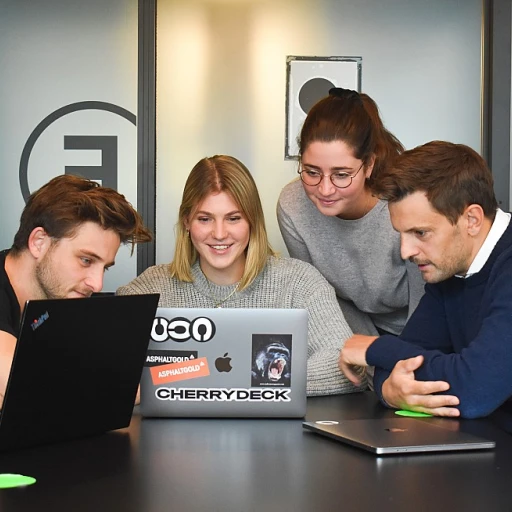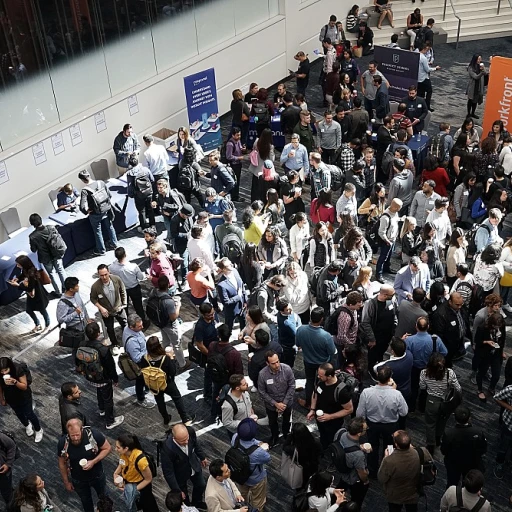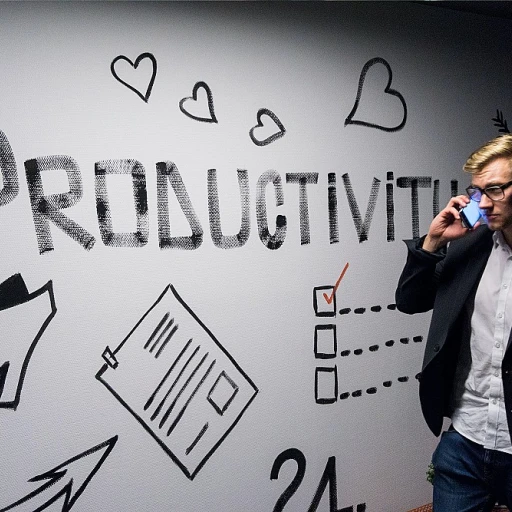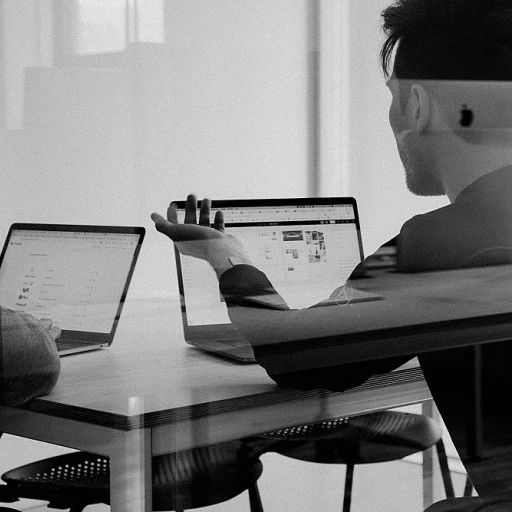
Understanding Pre-Hire Solutions
Defining Pre-Hire Solutions
In the fast-paced world of retail and hospitality, attracting and retaining top talent is crucial. Pre-hire solutions play a pivotal role in enhancing the recruitment process by providing tools and strategies to identify the best candidates before they even step into an interview room. These solutions encompass a range of technologies and methodologies designed to streamline the hiring process, ensuring that businesses can efficiently manage their staffing needs.
The Importance of Pre-Hire Solutions
Pre-hire solutions are essential for several reasons. Firstly, they help in reducing the time to hire by automating various stages of the recruitment process. This is particularly important in industries like retail and hospitality, where staffing needs can fluctuate rapidly. By leveraging these solutions, hiring managers can focus on engaging with candidates who are the best fit for the job, rather than getting bogged down in administrative tasks.
Moreover, pre-hire solutions enhance the candidate experience by providing a seamless and efficient recruitment process. This is crucial in maintaining a strong employer brand, as candidates are more likely to have a positive perception of a company that values their time and effort. Additionally, these solutions often include features like video interviews and background checks, which further streamline the hiring process.
Components of Pre-Hire Solutions
Effective pre-hire solutions typically include several key components:
- Applicant Tracking Systems (ATS): These systems help manage the recruitment process by tracking candidates from application to hire.
- Screening Tools: Automated screening tools help in filtering candidates based on predefined criteria, ensuring only the most suitable candidates are considered.
- Video Interview Platforms: These platforms allow for remote interviews, saving time and resources for both employers and candidates.
- Background Check Services: Ensuring candidates meet the necessary requirements and have a clean history is crucial in industries like retail and hospitality.
For more insights on how pre-hire solutions can be integrated into a broader talent management strategy, you can explore this coordinator's guide.
Challenges in Retail and Hospitality Recruitment
Unique Challenges in Retail and Hospitality Hiring
The retail and hospitality sectors play a crucial role in the economy, yet they face distinct challenges in attracting and retaining top talent. Recruitment in these industries is often difficult due to their dynamic nature and the need for exceptional customer service skills.- High Turnover Rates: One of the most significant issues is the high turnover rate. Employees in these sectors often use their roles as stepping stones, leading to a constant cycle of hiring and training new staff.
- Diverse Staffing Needs: Retail and hospitality businesses require a diverse range of skills, from front-line staff to specialized roles. This diversity complicates the recruitment process and poses challenges in finding candidates who fit the company culture and possess the necessary skills.
- Irregular Work Hours: The nature of the work often demands irregular hours, which can be a deterrent for potential candidates seeking work-life balance.
- Seasonal Fluctuations: Both industries experience seasonal demand, requiring businesses to ramp up staff quickly and efficiently during peak periods. This seasonal fluctuation demands an adaptable recruitment process to handle the sudden need for talent.
- Maintaining Candidate Experience: In such competitive job markets, providing an engaging and positive candidate experience is critical. Candidates expect prompt feedback and a streamlined hiring process, yet many businesses struggle to provide this.
Key Features of Effective Pre-Hire Solutions
Essential Components for Successful Pre-Hire Solutions
In the competitive fields of retail and hospitality, where the demand for top talent is high, effective pre-hire solutions are crucial. These solutions not only streamline the recruitment process but also enhance the overall candidate experience, ensuring that the right candidates are matched with the right roles. Here are some key features that define effective pre-hire solutions:
- Comprehensive Screening: A robust pre-hire solution should include thorough screening processes, such as background checks and pre-employment assessments. This ensures that candidates meet the necessary qualifications and align with the company’s values.
- Applicant Tracking Systems (ATS): An efficient ATS helps hiring managers track candidates throughout the recruitment process. It simplifies the management of applications, making it easier to identify and engage with potential hires.
- Video Interviews: Incorporating video interviews into the hiring process can save time and resources. It allows hiring managers to assess candidates' communication skills and cultural fit without the need for in-person meetings, which is particularly beneficial in the hospitality industry.
- Talent Acquisition Analytics: Data-driven insights can significantly enhance the recruitment process. By analyzing metrics such as time to hire and candidate drop-off rates, companies can optimize their strategies to attract and retain top talent.
- Branding and Candidate Experience: A positive candidate experience is vital for maintaining a strong employer brand. Pre-hire solutions should focus on creating a seamless and engaging recruitment journey, from the initial application to the final interview.
By integrating these features, companies in the retail and hospitality sectors can improve their staffing solutions and reduce the time to hire. For more insights on accessing payroll information and enhancing recruitment processes, you can explore this comprehensive guide.
Technology's Role in Streamlining Hiring
Leveraging Technology for Efficient Hiring
In the fast-paced world of retail and hospitality, the hiring process can be a daunting task. The need for top talent is constant, and the competition is fierce. This is where technology steps in, playing a pivotal role in streamlining the recruitment process. By integrating advanced solutions, businesses can enhance their ability to attract, screen, and hire candidates efficiently.
One of the most significant advancements in this area is the use of applicant tracking systems (ATS). These systems automate many of the manual tasks involved in recruitment, such as sorting resumes and scheduling interviews. This not only saves time but also ensures that no potential candidate is overlooked. For hiring managers, this means a more organized and efficient process, allowing them to focus on selecting the right talent for their brand.
Another key technological advancement is the implementation of video interviews. In the hospitality industry, where customer service is paramount, assessing a candidate's communication skills and personality is crucial. Video interviews provide a platform for candidates to showcase their abilities in a more dynamic way than traditional phone screenings. This method also allows for a broader reach, enabling companies to connect with candidates from different geographical locations without the need for travel.
Moreover, pre-employment assessments have become a staple in the hiring process. These assessments help in evaluating a candidate's skills, personality, and cultural fit, ensuring that the right individuals are selected for the job. This not only improves the candidate experience but also enhances the long-term success of the hire.
Background checks are another critical component of the hiring process, particularly in retail hospitality. Technology has made it easier to conduct thorough background checks quickly, ensuring that candidates meet the necessary criteria before they are brought on board. This step is essential in maintaining the integrity and safety of the workplace.
In conclusion, technology is an invaluable ally in the recruitment process, offering solutions that enhance efficiency and effectiveness. By embracing these tools, businesses in the retail and hospitality sectors can improve their talent acquisition strategies, ultimately leading to a stronger employer brand and better staffing solutions.
Case Studies: Success Stories in Retail and Hospitality
Real-World Success in Retail and Hospitality Hiring
In the competitive landscapes of retail and hospitality, effective pre-hire solutions have proven to be game-changers. These industries face unique challenges in recruitment, such as high turnover rates and the need for exceptional customer service skills. However, several companies have successfully navigated these hurdles by leveraging advanced hiring technologies.
Streamlining the Hiring Process in Retail
One notable example in the retail sector involves a major global brand that revamped its recruitment process by integrating an applicant tracking system (ATS) with pre-employment screening tools. This integration allowed the company to efficiently manage a large volume of applications, significantly reducing the time to hire. By automating the initial screening and background checks, hiring managers could focus on interviewing top talent, enhancing the overall candidate experience.
Enhancing Candidate Experience in Hospitality
In the hospitality industry, a leading hotel chain implemented video interviews as part of their pre-hire solutions. This approach not only expedited the hiring process but also provided a more flexible and engaging experience for candidates. By allowing candidates to showcase their customer service skills in a virtual setting, the company improved its talent acquisition strategy and strengthened its employer brand.
Long-Term Benefits of Pre-Hire Solutions
Both case studies highlight the long-term benefits of adopting pre-hire solutions. By optimizing the recruitment process, these companies have not only improved their staffing solutions but also enhanced their ability to attract and retain top talent. As the demand for efficient hiring processes continues to grow, the integration of technology in recruitment will remain a critical factor in the success of retail and hospitality staffing.












